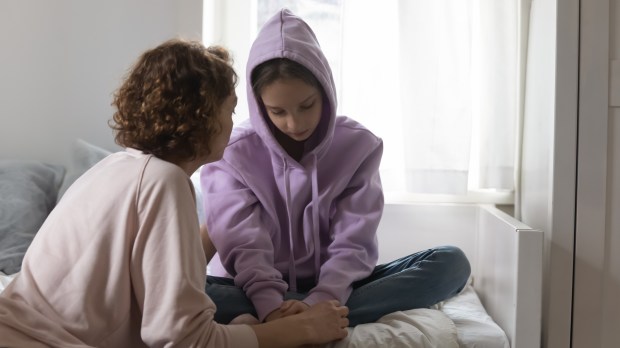If you’re a parent you’ve probably lost count of the number of times you’ve asked your children to apologize for something — and the number of times you hoped they’d think of it on their own. But how many times have you apologized to them?
At first consideration, the notion of saying sorry to your kids seems to fly in the face of the natural filial duty children owe their parents. But actually, it’s entirely in keeping with what good parenting is all about and part of building healthy, harmonious relationships in our families.
Building trust and attachment
Apologizing to a child doesn’t diminish parental authority; rather it develops trust, which in turn fosters a more secure attachment between parent and child. Secure and healthy attachment is the foundation for healthy, loving relationships — and not just between parents and children, but those your children will build with others when they’re adults.
Apologizing also makes one vulnerable and therefore allows a child to see his or her parent as an imperfect human being, someone they can trust with their own mistakes and failures.
Modeling humility and good behavior
Apologizing to a child models the kind of behavior we want to instill in our children. We want them to learn how and when to apologize, and to do it without fear or hesitation.
When we say that we are sorry as adults, it teaches children that self-awareness and humility are necessary for everyone, no matter their age or how much authority they wield. In addition, it teaches children the words to say, as well as what kinds of situations require an apology, normalizing it as something we do with those we love.
Appreciation of God’s forgiveness
It is helpful for children to see that parents are also in need of forgiveness — from others and from God. When a family prioritizes taking responsibility, apologizing, and forgiving, it paves the way for children to understand the necessity of reconciliation with God.
So what kinds of things you should you apologize for, you may be wondering?
Any time we believe we have violated the laws of love and respect, kindness and patience, we should apologize. Here are some examples of the kinds of apologies you may want to have at the ready when a situation with your child calls for it.
I’m sorry I spoke so harshly to you.
I’m sorry I didn’t listen to what you were trying to tell me.
I’m sorry I was distracted and not fully present to you.
I’m sorry my worries prevented me from letting you be brave/try something new, etc.
I’m sorry I made assumptions before asking you what really happened.
Remember that a good apology should focus on what you did, and not on any excuses for why you behaved as you did. A good apology also states what you’re sorry for, and may include an acknowledgement of what you should have done instead. And don’t forget that immediately after an apology you should ask for forgiveness. Keep it simple: Will you forgive me?
Afterwards, you may want to discuss the situation further and use it as an opportunity for conversation. Similar to the apology, tailor it to the age and maturity of your child.
When we show our weaknesses to our children, they learn that it’s okay to make mistakes, and to own up to them. This knowledge and ability will serve them for their entire lives in all of their relationships, and forge a stronger bond between you and your children.



